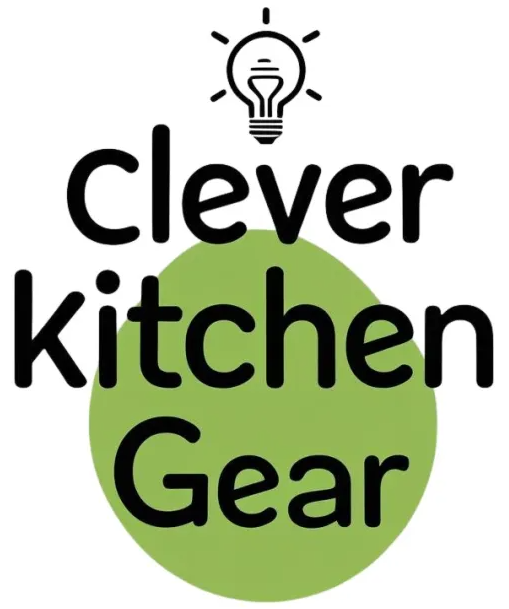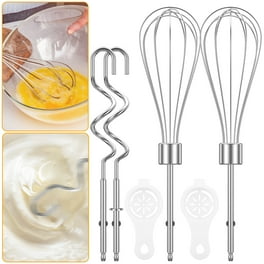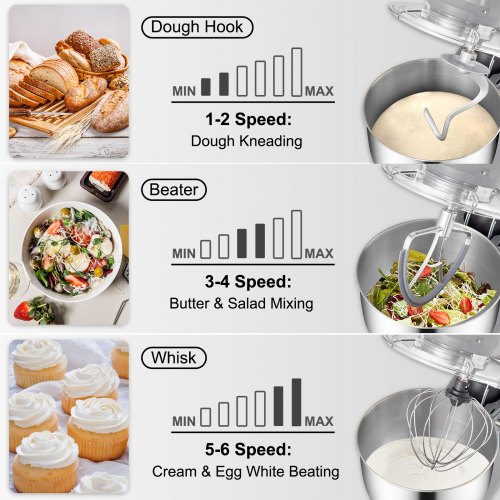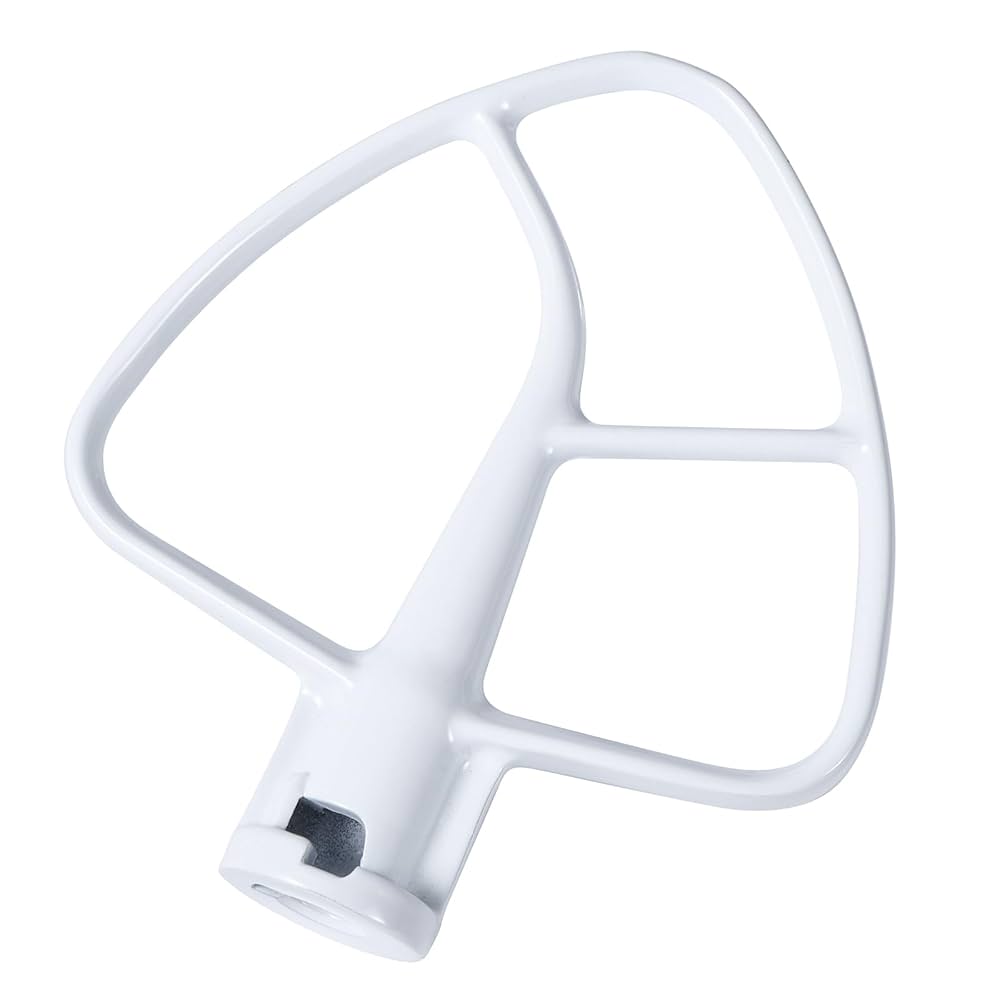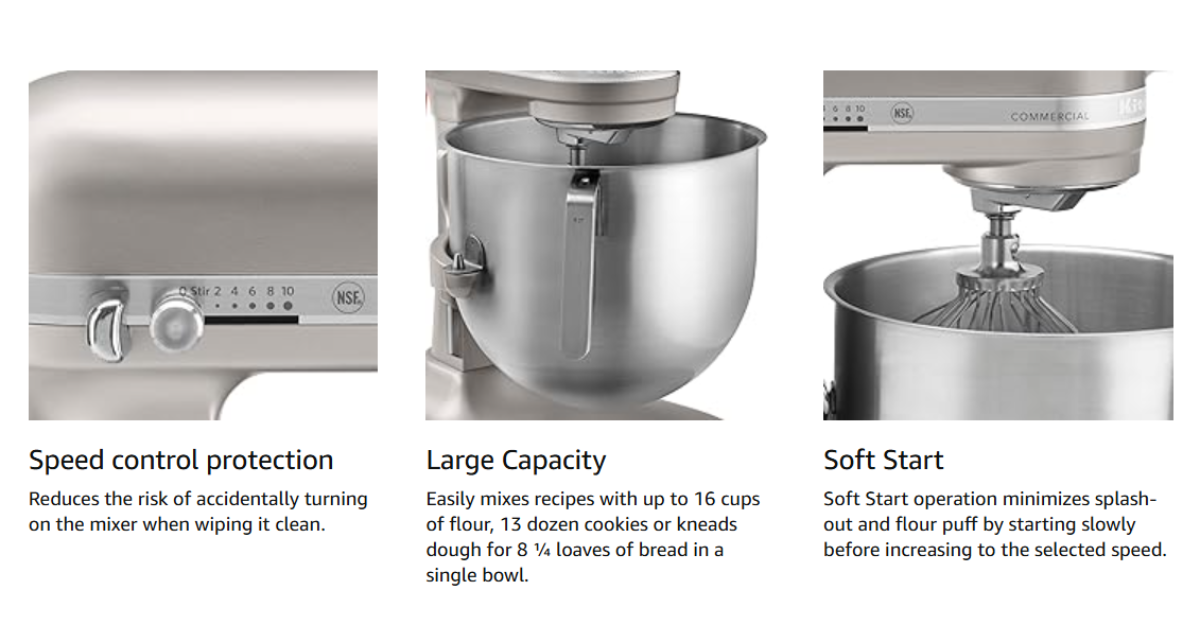Imagine baking your favorite cookies or cake, and you're at the crucial step of creaming butter and sugar. You might wonder, "Am I using the right mixer attachment?"
This question matters more than you might think. Choosing the right tool can transform your baking experience from a daunting task into an enjoyable activity. The perfect attachment can make your ingredients blend seamlessly, creating that light and fluffy texture you’re aiming for.
This can be the difference between a good bake and a great one. You’ll discover which mixer attachment is the best for beating butter and sugar, ensuring your baked goods turn out just the way you dream. Stick with us, and you'll be armed with the knowledge to elevate your baking game.

Credit: food52.com
Choosing The Right Mixer Attachment
Choosing the right mixer attachment is important for beating butter and sugar. The right tool helps mix ingredients evenly. It also saves time and effort in the kitchen.
Not all mixer attachments work the same. Knowing the types and materials helps you pick the best one for your needs.
Types Of Mixer Attachments
There are several types of mixer attachments for beating butter and sugar. Each has a specific design to handle different tasks.
- Flat Beater:Best for creaming butter and sugar. It mixes without adding too much air.
- Whisk:Good for whipping air into ingredients. Not ideal for dense mixtures.
- Dough Hook:Made for kneading dough, not beating.
Material And Design Considerations
Material and design affect the attachment's durability and performance. Stainless steel and coated metal are common choices.
| Material | Advantages | Disadvantages |
|---|---|---|
| Stainless Steel | Durable, easy to clean, rust-resistant | Can be heavy |
| Aluminum with Non-stick Coating | Lightweight, prevents sticking | Coating may wear off over time |
| Plastic | Light and cheap | Less durable, may break easily |
Why Beating Butter And Sugar Matters
Beating butter and sugar is a key step in many baking recipes. It helps mix air into the batter, making baked goods light and fluffy.
Using the right mixer attachment makes this process easier and more effective. It changes how your final baked goods turn out.
Impact On Texture And Taste
When you beat butter and sugar well, the texture becomes soft and smooth. This creates a tender crumb in cakes and cookies.
The mixing also helps spread the sugar evenly, which improves the sweetness in every bite. It stops sugar from settling at the bottom.
- Incorporates air for fluffiness
- Makes batter smooth and creamy
- Evenly distributes sugar
- Creates a tender texture
Role In Baking Recipes
The mixer attachment you use affects how well butter and sugar combine. A paddle attachment is best for creaming.
This attachment mixes the ingredients gently but thoroughly. It keeps the butter from melting and helps trap air inside.
- Paddle attachment for creaming butter and sugar
- Whisk attachment adds too much air, not ideal here
- Dough hook is for heavy dough, not creaming
Best Attachments For Creaming Butter And Sugar
Creaming butter and sugar is a key step in many baking recipes. The right mixer attachment helps mix these ingredients evenly.
Choosing the best attachment can save time and improve the texture of your batter or dough.
Paddle Attachment Benefits
The paddle attachment is perfect for creaming butter and sugar. It mixes ingredients without adding too much air.
This attachment helps create a smooth and creamy texture, which is important for cakes and cookies.
- Mixes ingredients evenly
- Prevents over-aeration
- Works well with thick batters
- Maintains desired texture
Whisk Attachment Limitations
The whisk attachment adds too much air when creaming butter and sugar. This can change the texture of your batter.
It is better suited for whipping cream or egg whites, not dense mixtures like butter and sugar.
- Incorporates excess air
- Can cause batter to be too light
- Not ideal for thick mixtures
- May affect baking results

Credit: apearlkindofgirl.com
Using The Paddle Attachment Effectively
The paddle attachment is best for mixing butter and sugar. It helps create a smooth and creamy texture.
Using the right speed and technique with the paddle attachment improves your baking results.
Speed Settings For Optimal Creaming
Start mixing butter and sugar at a low speed to avoid splashing. Increase speed as the mixture softens.
- Begin at speed 2 or 3 for 30 seconds.
- Raise speed to 4 or 5 for 2 to 3 minutes.
- Stop mixing when the mixture looks light and fluffy.
Tips To Avoid Overbeating
Overbeating can cause the butter and sugar to separate. This affects texture and final taste.
| Problem | Effect | How to Prevent |
| Butter melts | Batter becomes too soft | Use cool butter and low speed |
| Sugar grain dissolves too fast | Loss of fluffiness | Mix just until creamy |
| Mixture separates | Greasy texture | Stop mixing once light and fluffy |
Alternatives When Paddle Attachment Is Unavailable
Beating butter and sugar is key in baking recipes. The paddle attachment is best for this task. Sometimes, it may not be available. You can still mix well using other methods or attachments.
This guide shows easy alternatives. You can choose hand mixing or try different mixer attachments. Each option works well depending on your tools and time.
Hand Mixing Techniques
Mixing butter and sugar by hand needs patience and the right tools. Use a wooden spoon or a sturdy whisk. Start by softening butter to room temperature. Then, beat sugar into the butter until fluffy.
- Use a large bowl for easier mixing
- Press butter against the bowl sides to soften it
- Mix sugar gradually to avoid grainy texture
- Beat vigorously for 3 to 5 minutes for fluffiness
- Take breaks if the mixture feels too stiff
Other Mixer Attachments To Consider
Some mixers offer multiple attachments. If the paddle is missing, try these alternatives. Each has pros and cons for beating butter and sugar.
| Attachment | Best Use | Notes |
|---|---|---|
| Whisk Attachment | Incorporates air fast | Can over-whip; watch texture closely |
| Dough Hook | Good for soft doughs | Not ideal for creaming; use only if gentle mixing needed |
| Hand Mixer Beaters | Similar to paddle | Use medium speed; avoid overheating butter |
Maintaining Your Mixer Attachments
Keeping your mixer attachments clean and in good shape helps them last longer. Proper care ensures better performance when beating butter and sugar.
Simple maintenance saves money and keeps your mixer working smoothly for every baking task.
Cleaning And Storage Tips
Clean attachments soon after use to avoid hardened sugar or butter. Use warm, soapy water and a soft brush for thorough cleaning.
- Remove attachments carefully before washing.
- Wash by hand or use the dishwasher if safe.
- Dry completely before storing to prevent rust.
- Store in a dry, cool place away from dust.
- Keep attachments separate to avoid scratches.
When To Replace Attachments
Replace attachments if they show signs of wear or damage. Damaged tools can affect mixing quality and may cause safety issues.
| Sign of Wear | Why Replace |
| Rust spots | Can contaminate food and weaken metal |
| Cracks or chips | May break during use and cause injury |
| Loose or bent parts | Reduce mixing efficiency and damage mixer |
| Non-stick coating peeling | Can mix into food, unsafe to use |
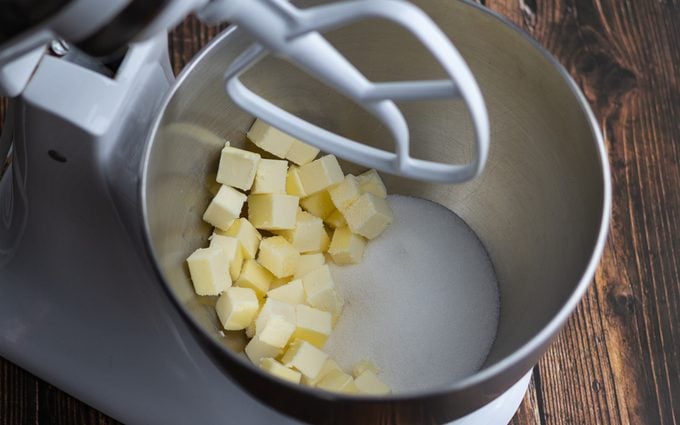
Credit: www.tasteofhome.com
Frequently Asked Questions
What Mixer Attachment Is Best For Beating Butter And Sugar?
The paddle attachment is best for beating butter and sugar. It mixes ingredients evenly without adding too much air. This helps create a smooth, creamy texture ideal for baking.
Can I Use A Whisk Attachment To Beat Butter And Sugar?
A whisk attachment is not ideal for butter and sugar. It incorporates too much air, making the mixture fluffy but less stable for baking.
How Does The Paddle Attachment Improve Butter And Sugar Mixing?
The paddle attachment mixes butter and sugar thoroughly and evenly. It avoids over-aeration, creating the perfect creamy texture needed for cakes and cookies.
Is The Dough Hook Suitable For Beating Butter And Sugar?
No, the dough hook is not suitable. It’s designed for kneading dough and won’t properly cream butter and sugar.
Conclusion
Choosing the right mixer attachment makes baking easier and faster. The paddle attachment works best for beating butter and sugar. It mixes ingredients evenly without overworking the batter. Using the correct tool helps create smooth, fluffy mixtures every time. This small step improves your baking results a lot.
Try the paddle attachment in your next recipe. You will notice the difference in texture and taste. Baking becomes more enjoyable with the right tools. Simple choices lead to better homemade treats.
